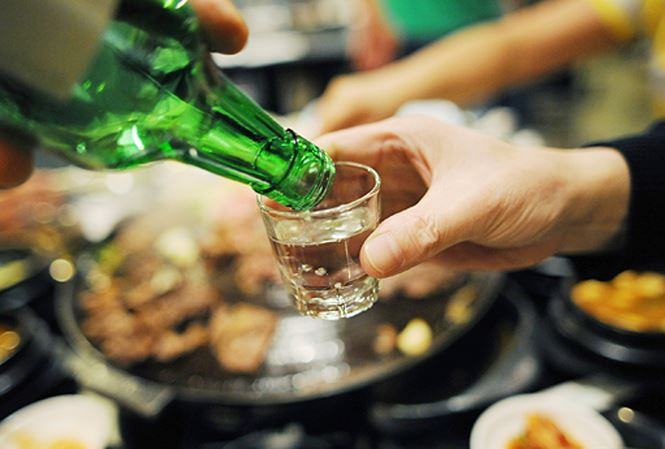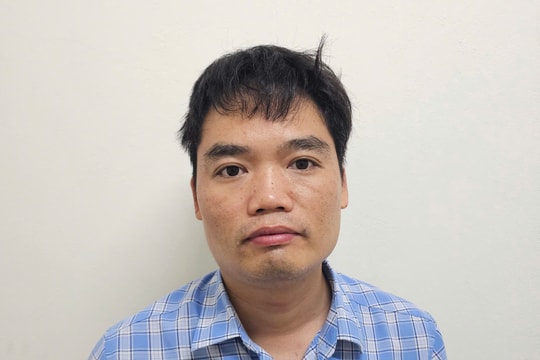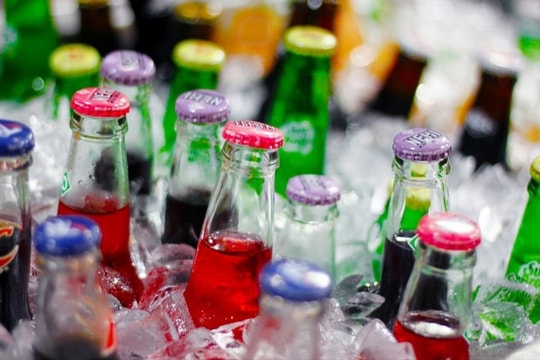Can lose life because of using hangover cure to increase drinking "strength"
There are cases where drinkers almost lost their lives because they thought they had a hangover cure so they kept drinking freely, causing poisoning and acute alcohol poisoning.
Self-destruction of liver and stomach
Anti-alcohol drugs are also known as hangover cures, which help reduce drunkenness while drinking or immediately after drinking, or help increase the “strength” of alcohol before drinking. The Poison Control Center of Bach Mai Hospital, Hanoi, once received alcoholic patients who drank until they were drunk and then took hangover cures, meaning they had to go to the emergency room.
There are also cases of people with liver disease who abuse hangover cures, considering them a panacea to help them drink more alcohol, leading to liver failure and hospitalization.
In fact, the above mentioned hangover pills only partially support the process of alcohol metabolism, but there is no scientific document proving their effect of protecting or restoring organs that are easily damaged by alcohol, such as the liver, or eliminating the effects of alcohol on the central nervous system to eliminate the state of drunkenness.
Because of the misconception that hangover pills are good medicine, many people carelessly drink alcohol and use them to neutralize it, thinking that alcohol will not have a negative effect on the body. But in reality, when alcohol enters the body, it will directly affect the liver and nervous system, and hangover pills do not have a miraculous effect in protecting the liver and nervous system from deterioration and damage.
Drinking hangover pills is called increasing the amount of alcohol consumed, which is increasing the amount of alcohol consumed when drinking, and will only bring disaster to the body. There have been cases where drinkers almost lost their lives because they thought they had a hangover cure, so they drank freely regardless of the toxic dose, leading to acute alcohol poisoning.
Some people who drink a lot of alcohol often have headaches. Taking aspirin or paracetamol before or after drinking alcohol will help relieve the headache, making the drinker feel more comfortable. Aspirin has the side effect of damaging the lining of the stomach and duodenum, leading to ulcers and even causing gastrointestinal bleeding.
Paracetamol is a drug with a little-known toxicity that is very harmful to the liver. Using high doses of paracetamol for a long time can cause liver poisoning and liver cell necrosis. People who drink alcohol for a long time, whose liver is already weakened, now take more paracetamol to increase the "strength" to prevent headaches, will definitely not increase the "strength" or prevent headaches, but will only see the door to death, which is very dangerous liver cell necrosis.
"Hurrying" to quit drinking can also be dangerous
Alcohol damages the brain, heart, liver, pancreas, increases the risk of cancer, weakens the immune system, increases the risk of infectious diseases, but it can also lead to death if you try to quit drinking incorrectly. That is what Dr. Adam Taylor, Director of the Clinical Anatomy Training Center - Lancaster University (UK), emphasized in an article recently published in the newspaper.The Conversation.
The problem that occurs when you quit drinking suddenly after a long time is that the jar sinks. Your body has not yet adapted to this sudden healthiness, causing the machines to become disordered.
The biggest problem is in the nervous system. The neurotransmitter factory is working at high capacity, the inhibition from alcohol is suddenly lost, leading to an excess of neurochemicals compared to the body's needs. That is why people who have just quit drinking often sweat, have a fast heartbeat, restlessness, anxiety. This can also lead to fatal arrhythmia. Some people also suffer from kidney failure.
Dr Taylor advises that the best way to avoid becoming an alcoholic is to not consume more than 14 units of alcohol a week (equivalent to 6 cans of beer or 6 glasses of wine). If you are an alcoholic and want to quit, try to get your body back to this safe level first.
You should also seek out facilities that specialize in alcohol addiction treatment, or at least consult your doctor, regularly screen for cardiovascular and kidney problems; ask your doctor to prescribe medications and supportive treatments to reduce the discomfort caused by alcohol withdrawal.









.jpg)
